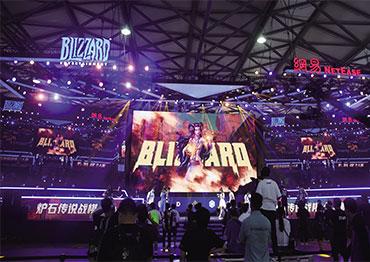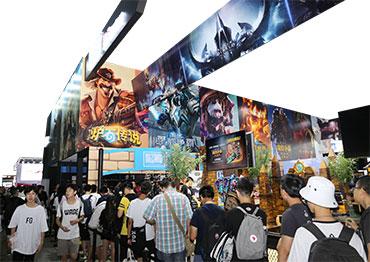In the November statement, Blizzard said it parted ways with NetEase because it could not reach a deal that was “consistent with Blizzard’s operating principles and commitments to players and employees.”
According to The Washington Post, Mike Ybarra, president of Blizzard Entertainment under Activision Blizzard, wrote in an email to employees that “it was a mismatch in values” that led to the non-renewal, without going into further detail.
NetEase, the mainland’s second-largest game developer after rival Tencent, released an English-language response to Blizzard’s statement: “We have put in a great deal of effort and tried with utmost sincerity to negotiate with Activision Blizzard so that we could continue our collaboration and serve the many dedicated players in China,” the statement said. “However, there were material differences on key terms and we could not reach an agreement.”
The statement did not further detail what the “material differences” are.
Chinese news portal guancha.cn quoted an insider as saying Blizzard proposed “high-price” conditions for the renewal and called some of the terms “ridiculously unacceptable.”
According to the insider, Blizzard sought a revenue share greater than in its previous contract. The company allegedly required that NetEase help develop and launch mobile versions of Blizzard’s other titles, but would only be eligible to earn profits from the Chinese market. The insider said Blizzard required NetEase to pay a deposit and compensation if NetEase fails to hit a certain revenue quota.
The insider called the terms “working for Blizzard free of charge.”
Another insider told NewsChina that NetEase initially saw developing Blizzard IPs as mutually beneficial, but Blizzard allegedly required a two-year advance on projected revenue growth in the neighborhood of several hundred million yuan.
“It was not acceptable that they required payment based on projected revenue rather than actual revenue,” the insider told NewsChina.
Bloomberg reported that the primary disputes behind the split involved “intellectual property” and “Blizzard’s intentions to control the data of millions of Chinese players.” However, the insider interviewed by NewsChina said the latter is unlikely, as NetEase owns and controls the servers.
According to the insider, Blizzard and NetEase had disputes involving joint ventures after Microsoft announced its offer to snap up Activision Blizzard for US$68.7 billion on January 18, 2022 in what would be the largest buyout in the industry’s history.
Microsoft’s stock price plunged the same day. Some analysts called the deal “irrational.” Gaming journalist Jeff Grubb tweeted “Activision is slowly disintegrating and making fewer games than ever,” to which senior Asian game market analyst Daniel Ahmad replied “A specter is haunting the games industry, the specter of consolidation.”
Such comments increased amid allegations of sexual harassment and workplace misconduct at Activision Blizzard against female employees dating back to 2016.
In 2022, 1,800 employees petitioned for Activision Blizzard CEO Bobby Kotick to resign after it was revealed that he withheld knowledge of the allegations from the company’s board. Kotick is expected to leave the company once the deal with Microsoft closes, Forbes reported.
These may be reasons why Blizzard proposed stricter terms for renewal. “Blizzard’s executives may want to leverage their performance in the Chinese market to negotiate a higher position in Microsoft following the acquisition,” the insider told NewsChina.
Neither side has commented on these insider claims. But in an open letter to WoW players, NetEase said that the negotiations were harder than expected and that it could not accept some terms concerning sustainable operations and players’ core interests.
Following the company’s statements, Simon Zhu, president of global investment and partnerships for NetEase, posted to his LinkedIn page in English: “One day, when what happened behind the scenes can be told, developers and gamers will have a whole new level of understanding of how much damage a jerk can make.” The post triggered online debate among Chinese gamers about whether the “jerk” is from NetEase or Blizzard.

 Old Version
Old Version
